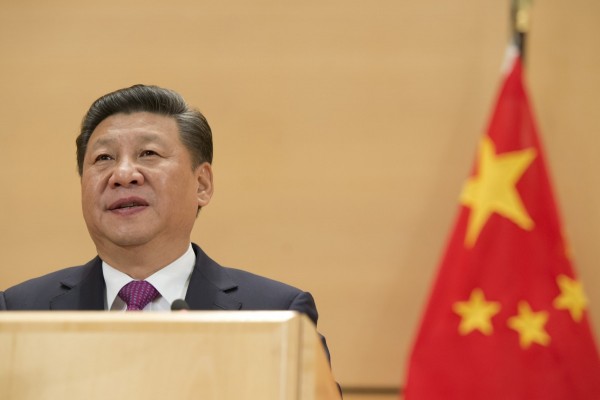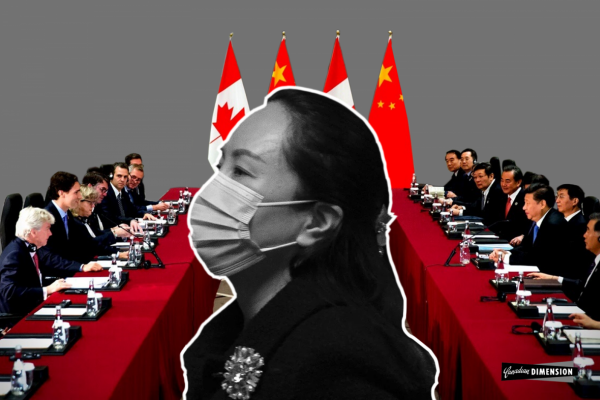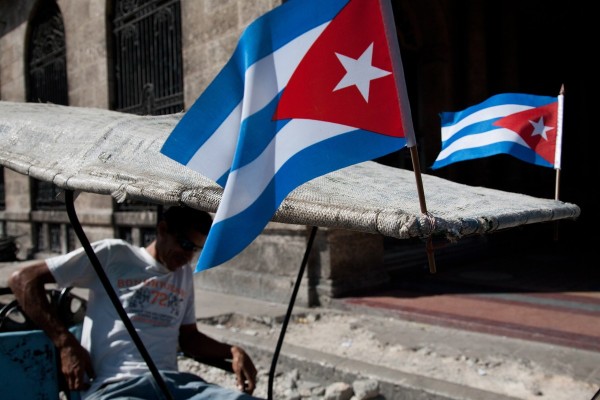Canada’s ‘sustainable transition’ is tied up with Washington’s war on China
Our policy toward China is not about defending democracy, writes Owen Schalk

Image by Viperagp/Bigstock
With commodity prices high following Russia’s invasion of Ukraine, and Europe looking for alternatives to Russian energy resources, many leading politicians in the West have been championing a transition to sustainable energy. While Western countries’ words speak much louder than their actions in this regard, their statements are nevertheless welcomed by officials in the transnational mining industry, who are increasingly being financed by states in the Global North to explore and exploit critical mineral reserves globally.
Battery metals have become a central focus of the mining sector’s “green energy” claims. This year’s Mining Indaba, an annual South Africa-hosted gathering of continental and international figures aimed at promoting the industry, was organized under the banner of “energy transition,” and a number of top mining oligarchs referenced sustainability and the war in Ukraine in their speeches. Robert Friedland, billionaire founder of Canada’s Ivanhoe Mines, stated that he would prefer to buy platinum from South Africa rather than Russia and that the continent will need to “develop a lot more mines” on the way to a global energy transition.
Some estimate that the global market for batteries will increase 20 percent annually. Meanwhile, the World Economic Forum claims that “[t]he production of minerals such as graphite, lithium, and cobalt could increase by nearly 500% by 2050 to meet the growing demand for clean energy technologies.”
The pro-industry Canadian Mining Journal has already spotlighted several battery metals mines in Canada, including Québec’s Nouveau Monde Graphite, and declared that Canada has everything it needs to lead the world toward a sustainable energy transition: “critical minerals and raw materials, robust mining and processing expertise, and a government with a reputation for being business-friendly, fiscally sophisticated, with high standards for environmental protection, human rights, labour, and workplace safety.” Meanwhile, some in the mining industry are calling lithium, an essential mineral in the manufacturing of batteries for electric vehicles, “the new gold” and urging Canada to become an international lithium powerhouse.
Ottawa has already begun to fund exploration into less exploited regions of the country, including Indigenous lands, which some of the most potentially lucrative reserves are located on or near. In the Northwest Territories, where over half the population is Indigenous, the federal government has recently begun offering grants to mining companies through its Mining Incentive Program for the purpose of “exploration and development in diamonds, gold, and several critical minerals.” On a June 17 call, Prime Minister Justin Trudeau and Northwest Territories Premier Caroline Cochrane “discussed the great potential for collaboration on critical minerals, noting the significance of mining to the Northwest Territory’s economy.”
The exploitation of critical minerals in Canada has also become a priority in Washington. A recent CBC piece illustrated how the US military has been “quietly soliciting applications for Canadian mining projects that want American public funding through a major national security initiative.” The article notes that the US government’s decision to suspend semiconductor exports to China was Washington’s latest measure in “an emerging digital cold war in which Canada is increasingly involved,” and in which battery metals are a central flashpoint. Canadian officials have already provided Washington with a list of 70 projects they believe deserve direct US military funding.
We already have China & Russian oligarchs pulling strings in Saskatchewan. We'll likely have the US military driving our rare earth exploration as well. This province is for sale & it would be nice if it benefitted the people living here, not just CEOs. https://t.co/zxaCSp7gbl
— Kyle Anderson (@DrKyle) November 13, 2022
Ottawa has recently been lobbying for increased US funding of its mining industry. In October 2022, Canada’s Minister of Innovation, Science and Industry François-Philippe Champagne travelled to Washington to pitch Canadian mineral reserves as an alternative to China. At a meeting of the Canadian American Business Council, he called for a complete “decoupling” from China and “other regimes in the world which don’t share the same values…People want to trade with people who, really, share the same values.”
Prior to Champagne’s visit, the Biden administration had already telegraphed that its anti-China policies would mirror those of Trump: extensive military support for Taiwan paired with the gradual limiting of trade in vital sectors, including technology, thus leaving an opening that Canadian capitalists and their representatives in the state are eager to fill.
Democratic “values” obviously have little to do with Canada’s unconditional support for aggressive US policies toward China. In 2017, Champagne visited Qatar and the United Arab Emirates as part of “the government’s progressive trade agenda.” As foreign affairs minister, he was the official who made the announcement that Canada would continue exporting weapons to Saudi Arabia following horrific war crimes in Yemen and the murder of Jamal Khashoggi. And in April 2022, he met with apartheid Israel’s ambassador and said they discussed “how we can work together to accelerate our economies through trade & innovation.”
Canadian policy toward China is not about defending democracy. It is not even another example of kowtowing to the US on the defining geopolitical issues of our time. Rather, the Canadian capitalist state has material interests in demonizing China and urging other countries to reduce trade with the country or decouple from its economy entirely. Foremost amongst those interests is Canada’s burgeoning battery metals industry, which Canadian political leaders and industry figures are attempting to develop into a profitable international alternative to China.
Owen Schalk is a writer based in Winnipeg. He is primarily interested in applying theories of imperialism, neocolonialism, and underdevelopment to global capitalism and Canada’s role therein. Visit his website at www.owenschalk.com.










